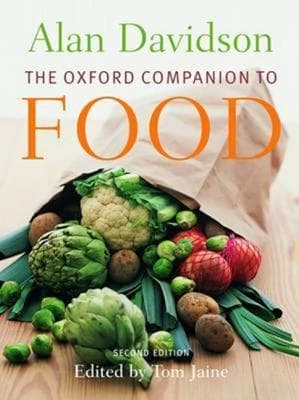
Book Review Summary: The Oxford Companion to Food
Introduction
"The Oxford Companion to Food" is a culinary masterpiece authored by Alan Davidson. First published in 1999, this magnum opus has garnered worldwide acclaim for its comprehensive coverage of food history, culinary expertise, and entertaining insights. With its exhaustive catalog of foods and a richly allusive commentary on the culture of food, this book stands out as a unique and unparalleled resource for food enthusiasts. In this article, we will explore the book's author, analyze readers' views, and summarize the reasons for both recommending and not recommending this exceptional work.
About Alan Davidson
Alan Davidson, the author of "The Oxford Companion to Food," was a renowned food historian and writer. He famously contributed eighty percent of the first edition, earning praise for his wit and wisdom. Tom Jaine, the editor of the second edition, worked closely with Jane Davidson and Helen Saberi to ensure that the new contributions continued in the same style. The result is an expanded volume that remains faithful to Davidson's peerless work.
Analysis of Views
- Comprehensive Coverage: Readers praise the book for its exhaustive catalog of foods and its richly allusive commentary on the culture of food. The extensive entries cover everything from individual ingredients to cooking techniques and cultural influences, making it a valuable resource for anyone interested in food.
- Entertaining Serendipity: The book's ability to captivate readers with unexpected insights and anecdotes is highly appreciated. Readers enjoy the combination of serious food history and culinary expertise presented in an engaging manner.
- Accessible and Informative: The book is accessible to both casual readers and serious food enthusiasts. While it does not provide recipes, it offers a wealth of information on various aspects of food, from historical backgrounds to cultural significance.
- Humor and Wit: Alan Davidson's writing style is praised for its wit and humor, which add a lighthearted touch to what could otherwise be a dry and technical subject. Readers appreciate the author's ability to make complex topics more approachable and entertaining.
- Timeless Relevance: "The Oxford Companion to Food" has stood the test of time, remaining relevant even as the field of food studies has evolved. The second edition edited by Tom Jaine reflects the rapid changes in the subject matter while maintaining the book's original spirit and style.
Reasons for Recommendation
- Comprehensive Resource: The book serves as a comprehensive resource for anyone interested in food, providing an exhaustive catalog of ingredients, cooking techniques, and cultural influences. It covers a wide range of topics, from agriculture to globalization, making it an essential addition to any food enthusiast's library.
- Entertaining Reading: The book's ability to entertain readers with unexpected insights and anecdotes makes it a delightful read. It offers a unique blend of serious food history and culinary expertise presented in an engaging manner, making it enjoyable for both casual readers and serious foodies alike.
- Timeless Relevance: The Oxford Companion to Food has stood the test of time, remaining relevant even as the field of food studies has evolved. Its comprehensive coverage and entertaining style make it a timeless resource that continues to inspire readers today.
Reasons for Not Recommendation
- Limited Focus on Recipes: While "The Oxford Companion to Food" offers a wealth of information on various aspects of food, it does not provide recipes. This limitation may be a drawback for readers specifically seeking recipe-based content.
- Dry British Archival Work: Some readers find the book's presentation dry and informative but lacking in illustrations or visual elements. This may be a factor for those who prefer more visually engaging content alongside their reading experience.
Conclusion
"The Oxford Companion to Food" by Alan Davidson is a remarkable book that has garnered widespread acclaim for its comprehensive coverage of food history, culinary expertise, and entertaining serendipity. Its ability to captivate readers with unexpected insights and anecdotes makes it a delightful read for anyone interested in food. While some readers may find it limited in its focus on recipes or prefer more visually engaging content, the book's timeless relevance and comprehensive resource value make it a highly recommended addition to any food enthusiast's library. Whether you are a casual reader or a serious foodie, "The Oxford Companion to Food" offers an encyclopedic journey into the world of food that is both informative and entertaining.